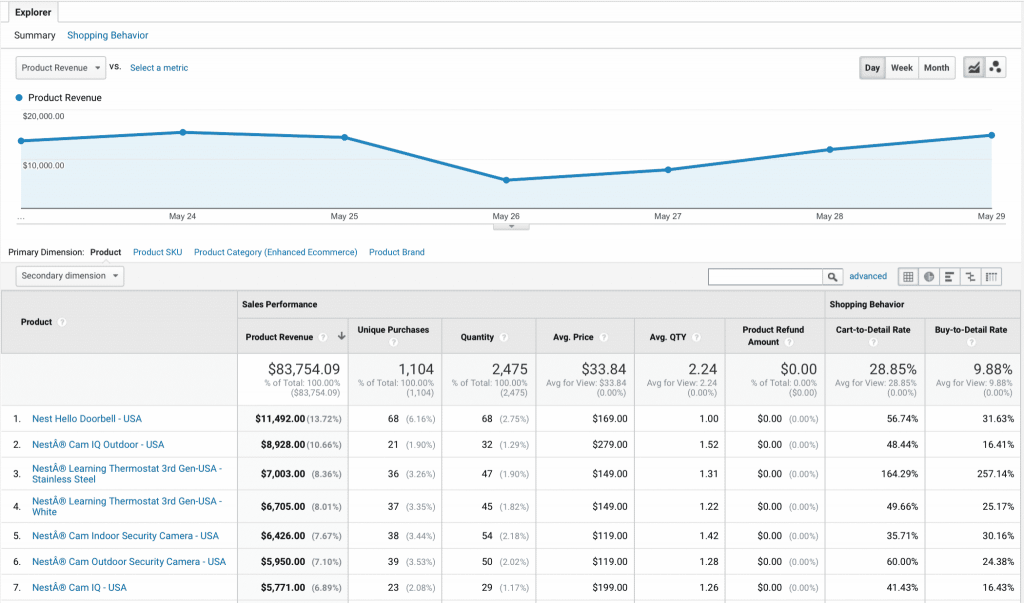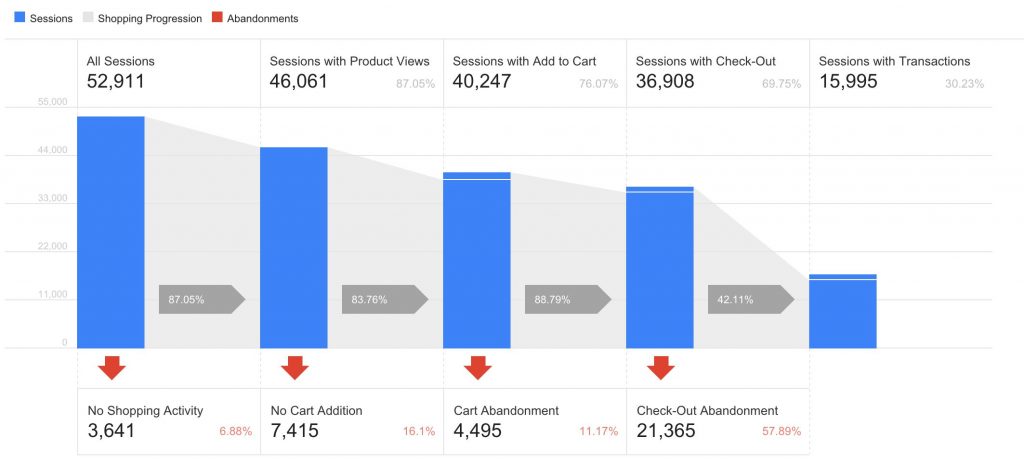Ecommerce sellers need to be able to analyze data in order to get actionable insights.
However, many sellers find it difficult to get started with data analytics. In this article, we will outline a few tips for getting started with data analytics for eCommerce sellers.
How data analytics is helping ecommerce sellers ?

Data analytics can be used to help ecommerce sellers make better decisions about their businesses. By analyzing data, sellers can track sales and traffic trends, find out what products are selling the best, and identify areas where they can improve their business.
Analytics tools such as Shopify provide sellers with detailed reports about their sales and traffic data. This information can help sellers make informed decisions about things like pricing, product selection, and marketing strategy.
Data analytics is an important tool for ecommerce sellers, and it is becoming increasingly essential in today’s online marketplace. By using data analytics, ecommerce sellers can improve their businesses and compete more successfully in the online space.
Ecommerce sellers need to be able to make data-driven decisions

As an ecommerce seller, it’s important to be able to make data-driven decisions. This means relying on hard data to guide your decisions, rather than making decisions based on gut feeling or guesswork. The good news is that there are plenty of tools and resources available to help you collect and analyze data.
For example, you can use Google Analytics to track website traffic and sales data. You can also use Amazon Seller Central to track your sales and customer reviews. By taking the time to track and analyze your data, you’ll be in a better position to make informed decisions that will help your business succeed.
To get started with data analytics for ecommerce sellers, it’s important to first identify the key metrics that are most relevant to your business. These could include metrics such as website traffic, sales revenue, customer reviews, and so on. Once you’ve identified these metrics, you can use tools like Google Analytics or Amazon Seller Central to track and analyze this data on a regular basis. Additionally, it’s important to stay up-to-date on the latest trends and best practices in ecommerce data analytics, so that you can continuously optimize and improve your business operations.
Different types of data that are important for ecommerce businesses
When it comes to ecommerce, data is everything. By understanding which types of data are most important for your business, you can make more informed decisions about where to focus your time and resources. There are a few key types of data that are particularly important for ecommerce businesses.
First, transaction data can provide insights into what products are selling well and which ones aren’t. Second, customer data can help you understand who your target market is and what they’re looking for. Finally, site data can help you identify areas for improvement on your website or pinpoint potential issues that could be causing customer churn. By understanding the importance of these different types of data, you can set your business up for success.
Overall, data analytics is a critical part of ecommerce success. Whether you’re just getting started or have been in business for a while, the key is to constantly seek out new insights and make improvements based on your findings. With the right tools and strategies in place, you can harness the power of data to take your ecommerce business.
Using the right tools, sellers can access and analyze this data to improve their business
The explosion of data being generated by the internet provides businesses with an unprecedented opportunity to gain insights into their customers and operations.
However, harnessing this data requires the use of the right tools. Analytics tools can help businesses to extract meaning from large data sets, identify patterns and trends, and make better-informed decisions.
By using analytics, businesses can improve their marketing efforts, understand their customers better, and optimize their operations. As data continues to grow in volume and complexity, the use of analytics will become increasingly important for businesses that want to stay ahead of the competition.
With Super Chain, you can analyze your ecommerce data in one glance and get automation directly , instead of only data visulization. If you are looking for tools for your ecommerce business, you can check out – Super Chain.
Some common issues that can be addressed through ecommerce analytics
Ecommerce analytics has the potential to provide insights that can help organizations address a variety of issues. For example, by analyzing customer data, businesses can identify trends and patterns that can help them improve their products or services.
Similarly, by analyzing employee data, companies can identify areas where they may need to improve their training or development programs.
Additionally, data analytics can also be used to identify operational issues, such as inefficiencies in manufacturing processes. Ultimately, data analytics provides a powerful tool that can be used to address a wide range of issues within an organization.
Conclusion
In conclusion, it is clear that a lawn can help to prevent soil erosion. The grassroots of the grass help to hold the soil in place, while the dense network of blades helps to deflect wind and water. In addition, lawns help to slow down the flow of rainwater, giving the ground a chance to absorb the water before it runs off. As a result, a well-tended lawn can play an essential role in preventing soil erosion.

